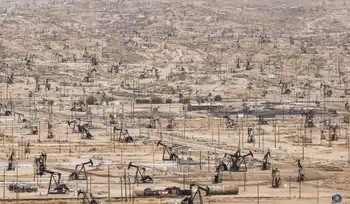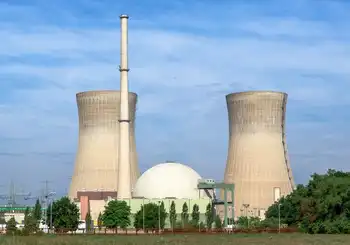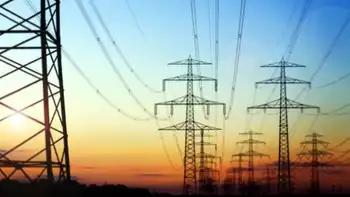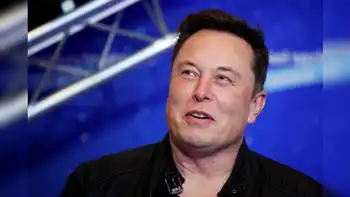Volkswagen's German Plant Closures
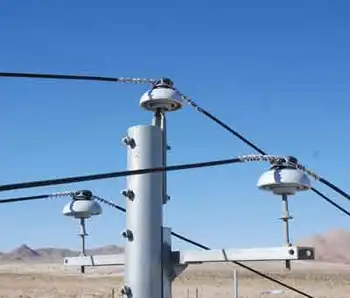
Electrical Testing & Commissioning of Power Systems
Our customized live online or in‑person group training can be delivered to your staff at your location.

- Live Online
- 12 hours Instructor-led
- Group Training Available
VW Germany Plant Closures For EV Shift signal a strategic realignment toward electric vehicles, sustainability, and zero-emission mobility, optimizing manufacturing, cutting ICE capacity, boosting battery production, retraining workers, and aligning with the Accelerate decarbonization strategy.
Key Points
VW is shuttering German plants to cut ICE costs and scale EV output, advancing sustainability and competitiveness.
✅ Streamlines operations; reallocates capital to EV platforms and batteries.
✅ Cuts ICE output, lowers emissions, and boosts clean manufacturing capacity.
✅ Retrains workforce amid closures; invests in software and charging tech.
Volkswagen (VW), one of the world’s largest automakers, is undergoing a significant transformation with the announcement of plant closures in Germany. As reported by The Guardian, this strategic shift is part of VW’s broader move towards prioritizing electric vehicles (EVs) and adapting to the evolving automotive market as EVs reach an inflection point globally. The decision highlights the company’s commitment to sustainability and innovation amid a rapidly changing industry landscape.
Strategic Plant Closures
Volkswagen’s decision to close several of its plants in Germany marks a pivotal moment in the company's history. These closures are part of a broader strategy to streamline operations, reduce costs, and focus on the production of electric vehicles. The move reflects VW’s response to the growing demand for EVs and the need to transition from traditional internal combustion engine (ICE) vehicles to cleaner, more sustainable alternatives.
The affected plants, which have been key components of VW’s manufacturing network, will cease production as the company reallocates resources and investments towards its electric vehicle programs. This realignment is aimed at improving operational efficiency and ensuring that VW remains competitive in a market that is increasingly oriented towards electric mobility.
A Shift Towards Electric Vehicles
The closures are closely linked to Volkswagen’s strategic shift towards electric vehicles. The automotive industry is undergoing a profound transformation as governments and consumers place greater emphasis on sustainability and reducing carbon emissions. Volkswagen has recognized this shift and is investing heavily in the development and production of EVs as part of its "Accelerate" strategy, anticipating widespread EV adoption within a decade across key markets.
The company’s commitment to electric vehicles is evident in its plans to launch a range of new electric models and increase production capacity for EVs. Volkswagen aims to become a leader in the electric mobility sector by leveraging its technological expertise and scale to drive innovation and expand its EV offerings.
Economic and Environmental Implications
The closure of VW’s German plants carries both economic and environmental implications. Economically, the move will impact the workforce and local economies dependent on these manufacturing sites. Volkswagen has indicated that it will work on providing support and retraining opportunities for affected employees, as the EV aftermarket evolves and reshapes service needs, but the transition will still pose challenges for workers and their communities.
Environmentally, the shift towards electric vehicles represents a significant positive development. Electric vehicles produce zero tailpipe emissions, which aligns with global efforts to combat climate change and reduce air pollution. By focusing on EV production, Volkswagen is contributing to the reduction of greenhouse gas emissions and supporting the transition to a more sustainable transportation system.
Challenges and Opportunities
While the transition to electric vehicles presents opportunities, it also comes with challenges. Volkswagen will need to manage the complexities of closing and repurposing its existing plants while ramping up production at new or upgraded facilities dedicated to EVs. This transition requires substantial investment in new technologies, infrastructure, and training, including battery supply strategies that influence manufacturing footprints, to ensure a smooth shift from traditional automotive manufacturing.
Additionally, Volkswagen faces competition from other automakers that are also investing heavily in electric vehicles, including Daimler's electrification plan outlining the scope of its transition. To maintain its competitive edge, VW must continue to innovate and offer attractive, high-performance electric models that meet consumer expectations.
Future Outlook
Looking ahead, Volkswagen’s focus on electric vehicles aligns with broader industry trends and regulatory pressures. Governments worldwide are implementing stricter emissions regulations and providing incentives for EV adoption, although Germany's plan to end EV subsidies has sparked debate domestically, creating a favorable environment for companies that are committed to sustainability and clean technology.
Volkswagen’s investment in electric vehicles and its strategic realignment reflect a proactive approach to addressing these trends. The company’s ability to navigate the challenges associated with plant closures and the transition to electric mobility will be critical, especially as Europe's EV slump tests demand signals, in determining its success in the evolving automotive landscape.
Conclusion
Volkswagen’s decision to close several plants in Germany and focus on electric vehicle production represents a significant shift in the company’s strategy. While the closures present challenges, they also highlight Volkswagen’s commitment to sustainability and its response to the growing demand for cleaner transportation solutions. By investing in electric vehicles and adapting its operations, Volkswagen aims to lead the way in the transition to a more sustainable automotive future. As the company moves forward, its ability to effectively manage this transition will be crucial in shaping its role in the global automotive market.






